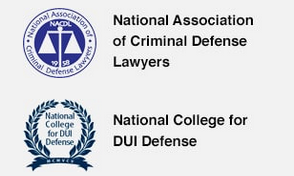Mitigating Factors in Sentencing
Criminal Defense Attorney Representing Residents of Phoenix
In some cases, it is not possible to obtain an acquittal. However, after guilt is adjudicated, an experienced attorney may be able to obtain a lighter sentence by presenting factors that the judge should consider as mitigating or reducing the harmfulness of your actions. Presenting the appropriate mitigating factors in sentencing in Arizona may make a difference to your case. James Novak is an experienced Phoenix criminal defense lawyer who previously served as a prosecutor. He has a strong understanding of how judges are likely to view your case and which factors may sway a judge to sentence you more leniently.
Mitigating Factors in Sentencing
Judges may consider many different mitigating factors when a defendant is sentenced. These may include the defendant’s age, their ability to understand that they did something wrong, the possibility that they were under duress, the extent of their role in the crime, their support in the community or in their family or religion, and any other factor that the court believes is mitigating.
Basically, mitigation is any evidence that is relevant to the defendant’s character, their propensity to commit the crime, and the circumstances surrounding the offense. Some factors not explicitly listed as mitigating factors are love of family, lack of a criminal record, low intelligence, disparity between sentences when there are two or more codefendants, status as a victim of sexual abuse, remorse, prior military service, and employment history.
Suppose, for example, that the defendant has an intellectual disability that made him unable to resist an accomplice’s call to assault someone. This might be a mitigating circumstance in an assault case because the defendant may not have had the ability to understand what he was doing wrong. Similarly, for a first-time controlled substance sale involving an 18-year-old college student who is a straight A student with no criminal record, the court might consider the student’s age, grades, and lack of criminal record as mitigating factors. Or, in another example, when a defendant with prior military service and a strong work history expresses sufficient remorse related to a white collar crime, the judge may impose a lighter sentence.
Conversely, a judge may also consider factors that are aggravating or that may worsen a sentence, such as any harm that was inflicted, any use of deadly weapons, any damage to property, any depraved or cruel behavior by the defendant in committing the offense, any presence of an accomplice, any past felony history of the defendant, and any involvement of financial incentives in committing the offense.
The judge balances the mitigating and aggravating factors to decide whether a defendant should get the presumptive sentence or a mitigated or an aggravated sentence. In Arizona, there is a sentencing range of years in prison that runs from mitigating factors to aggravating factors. It is the defense counsel’s job to focus the judge more on the mitigating factors so that they understand why a crime was committed and why the degree of blame or moral culpability should be somewhat less.
When there is a death sentence, under A.R.S. § 13-751, the judge needs to find proof beyond a reasonable doubt of at least one aggravating factor listed under the law and find no mitigating factors that are substantial enough to be more lenient. Generally, it is possible for a competent defendant to waive the presentation of mitigation evidence when this waiver is intelligent, voluntary, and knowing. But in most cases, it is critical to present mitigation evidence skillfully so that a lesser sentence is obtained.
Discuss the Sentencing Process with a Phoenix Lawyer
It is important to retain an experienced attorney from the outset of your case. However, if you are convicted or accept a guilty plea, it is also critical to have an attorney who can persuasively present mitigating factors in sentencing before a judge. Our principal is a former prosecutor who can provide aggressive, strategic representation for people facing a wide range of charges. Contact Phoenix attorney James Novak at (480) 413-1499 or via our online form for a free consultation. He also represents people who need a felony lawyer in Mesa, Tempe, Chandler, Gilbert, Scottsdale, and other areas of Maricopa County.






















